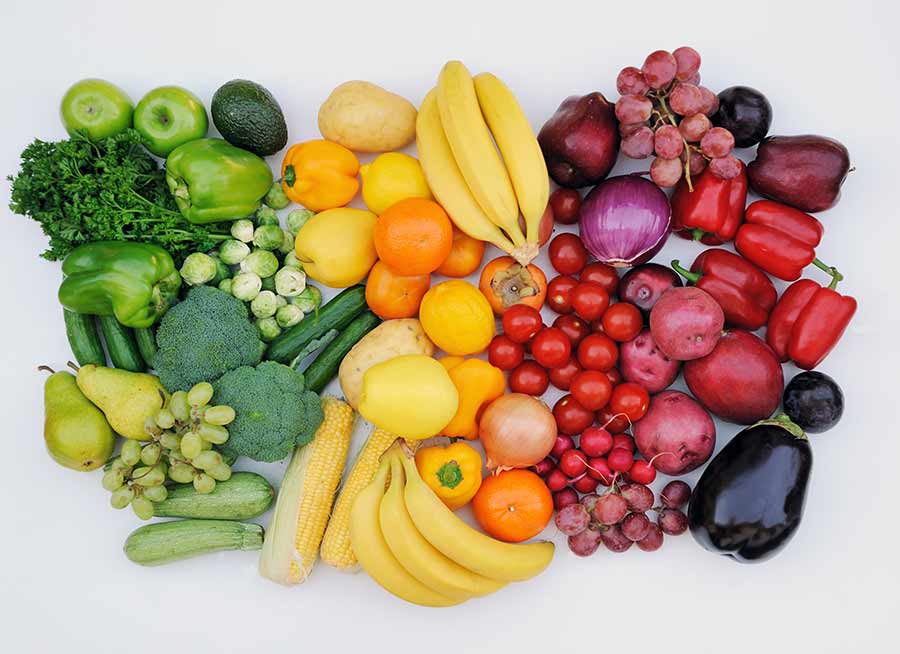
JOEL PETERSON – Level 5 Personal Trainer Apple Athletic Club
The Benefits of High Fiber Foods
- Lowers your cholesterol. Soluble fiber binds with fatty acids in your digestive system to help lower your cholesterol.
- Lowers your risk of heart disease. In addition to trapping cholesterol and fats, a fiber-rich diet has been shown to help reduce blood pressure and lower your chance of having a heart attack.
- Lowers your risk of type 2 diabetes. Because high-fiber foods slow down your digestion, you absorb sugar more slowly. This helps regulate your blood sugar and helps prevent the development of type 2 diabetes.
- Helps you control your weight. The fullness caused by soluble fiber, the slower digestion, and the decreased absorption of fat all help you control weight when you increase your fiber intake.
- Protects against colon cancer. Because dietary fiber helps you get rid of toxic waste in your colon, it may help prevent colon cancer.
- Strengthens your immune system. Dietary fiber promotes the growth of healthy bacteria in your colon, which can strengthen your immune system and help you fight infections.
- Prevents constipation. High-fiber foods are reliable bulk laxatives. Fiber absorbs water in your colon, which promotes regularity.
SOUNDS PRETTY IMPORTANT TO ME!

Before we go any further let’s define the two basic types of dietary fiber.
- Soluble fiber, found in cucumbers, blueberries, beans, and nuts, dissolves into a gel-like texture, helping to slow down your digestion. This helps you to feel full longer, which can help with weight control.
- Insoluble fiber, found in foods like dark green leafy vegetables, green beans, celery, and carrots, does not dissolve at all and helps add bulk to your stool. This helps food to move through your digestive tract more quickly for healthy elimination.
I believe about 32 grams per day is ideal. Unfortunately, most people get only half that, or less. The problem is we eat way too much processed foods that are void of any beneficial fiber or for that matter, nutrients. When most of us think of fiber we think of grains. I’d advise you to refrain from adding more whole grains to your diet, as a high-grain diet promotes insulin and leptin resistance, and that’s the last thing you need. So where is the best place to find fiber? Many whole foods, especially fruits and vegetables, naturally contain both soluble and insoluble fiber, both of which serve as excellent fodder for the microorganisms living in your gut. And don’t forget beans – a great source of fiber. Once regarded simply as a way to help with regularity or to aid occasional constipation, more recent research shows that dietary fiber has many other important health benefits.
For example, studies suggest a high-fiber diet can assist you in the battle against the bulge by regulating your appetite, in more ways than one. As reported by Time Magazine:
“Every increase of 10 grams of fiber each day was on average linked to a 15 percent lower risk of dying over the study period. It’s the first study to suggest that heart attack patients benefited from adding fiber (found in nuts, fruits and vegetables) to their daily diet…
Studies show that fiber-rich foods can combat inflammation, a potential trigger for heart attacks, as well as keep levels of LDL cholesterol, which can build up in heart arteries, down.”
The following whole foods contain high levels of soluble and insoluble fiber. Psyllium seed husk, flax, and chia seeds – Berries – Vegetables such as broccoli and Brussels sprouts – Root vegetables and tubers, including Onions, Sweet potatoes, and Jicama – Almonds – Peas – Green beans – Cauliflower – Beans.
Another great advantage of eating more of the above foods is all around better health. Let’s face it friends, the average American eats much more devitalized, processed foods than fresh, from the earth wholesome food.
Dr. Ward and I are committed and dedicated to your good health. You know the old adage “If you have your health you have everything”. We want you to have a healthy, long and productive life. Stay tuned to this channel. Much more to come!
